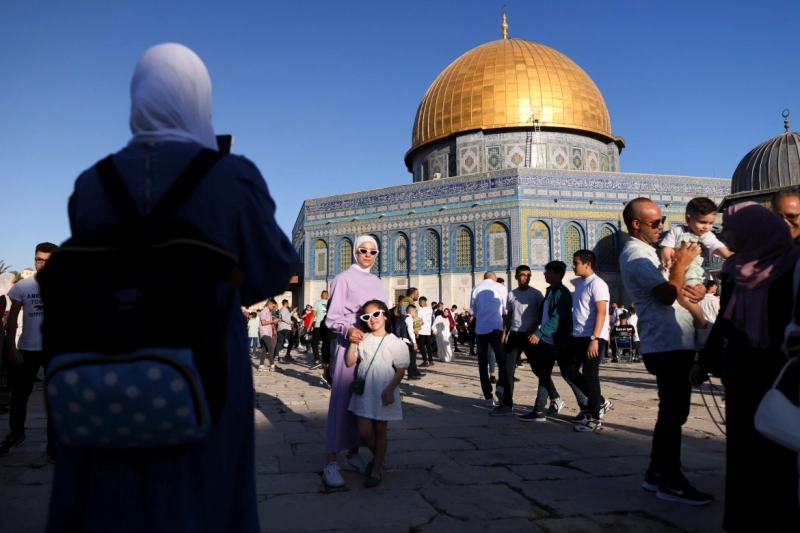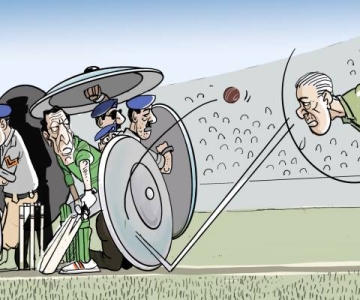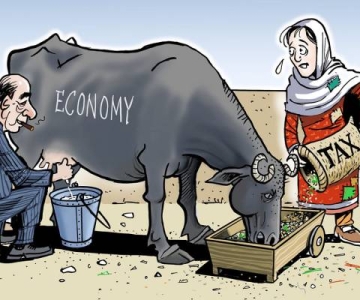Muslimness is an elusive state of being. There are watertight strictures of the theological identity defined by men, interpreted as the Sharia, on the one hand; and the broad political and cultural sense of the self, on the other. Identity, in any case, is a messy affair: shifty, shifting and eventually, imagined. While 9/11 placed Muslims at the centre stage of global politics, the broth had already been simmering in the cauldrons of biased academe and pop reality mirrored through the blood-thirsty lens of corporate media.
So what is it to be a Muslim? An inflexible bag of rituals? Or a cultural sense of belonging or a deeper dogma ingrained in young minds? I have never considered myself anything but a believer, a ‘practicing Muslim’. This has never been at variance with my secular and inclusive pretensions, despite the fact that the clergy in my country considers secularism akin to atheism, a sort of mirror image of the Pakistani political foundation. The clerics translate secular as la-deen , at best irreligious, and at worst, godless.
Ironical that this business of religious identity is articulated in a land that was the crucible of the secular Indus Valley civilization, non-militant Buddhism and a peculiar version of South Asian Islam that spread via the Sufi khanqahs and was a sort of amalgam of the Central Asian with the ancient South Asian. Even more ironical is the reality, neglected and veiled, that lived Islam is located around dargahs , tribal codes and customs which are irreligious in their own way. But who cares? Referred to as the world’s most dangerous country, Pakistan, according to the pundits of global opinion, is a haven for Islamic terrorists. Collateral damage, therefore, is kosher and a necessity to undo the unstated part of the ‘axis of evil’.
Labels and more labels. On the global shelves such products sell well and work in favour of a war machine hungry for energy resources, territory and blood.
It was a glorious autumn afternoon when a United Nations colleague rushed into my room in a ramshackle municipal building south of Kosovo, not far from the bastions of orthodox Christianity in northern Kosovo and Serbia. “Planes have hit the World Trade Center”, he said. An hour later we were glued to the television sets.
The greatest clichè of our times is how 9/11 changed everything, but like many other clichès, this was true. At least for Muslims across the globe. For weeks, I lived among endless debates and hushed insinuations about the Muslim global problem.
All of a sudden my Indian colleague, a closet Bharatiya Janata Party supporter, threw the gauntlet of my messed-up identity as a Pakistani Muslim at me. It had suddenly become a South Asian menace. In every drawing room conversation, we were described as inheritors of the barbarian invaders. The script was being polished for all that was to follow. The Westerners in the United Nations Mission, though, were more careful with their choice of words. They privately confessed the folly of engaging with the Taliban. I was quick to remind whoever would care to listen that Jihad and Taliban were simple imperial instruments, and not the Muslim behavioural archetype.
The Kosovars, too, were stunned. Overwhelmingly Muslims, they shared no cultural affinity with the Taliban brand of Islam. Kabul was thousands of miles away and they only had a vague empathy with the bombed Afghanis, especially the nameless civilians who, trapped in cross-fire, had nowhere to go.
We had a mosque next to the municipality building; a Turkish-Ottoman style grand structure. I attended several Friday prayers whose simplicity was no match for the boisterous South Asian ritual. Old men with Turkish caps would be dressed to pray and almost all the believers came wearing Western clothes. What got me wondering was the mosque leader, a gregarious man, who would be found in the local pub during the never-ending evenings of that little town. This was a little unpalatable for a Pakistani. One day I asked him about his rationale for blending alcohol with Islamic practices. There was laughter in response. I never got a rational answer.
Jogja’s physical and cultural landscape derives directly from the omnipresent and living volcano, Mount Merapi. The place has grown under its awe-inspiring shadow for 10, 000 years. Villagers living on its slopes refuse to leave even though the last time the volcano erupted was just two years ago. They are bound by the mystical powers attributed to the mountain. These powers are seen through lightning, thunderous clouds and days of ash-rain. This paganism mixes with the locals’ devotion to Islam in an unexpected and fascinating form. On Friday, mosques are full of devotees, and as they rise from their prayers the social chit chat alludes to magical stories and the powers of Mount Merapi. How are such devout Muslims so steeped in their local culture? “This must be the South Asian Muslim identity crisis”, I thought.
Pakistan celebrates Allama Iqbal’s birth and death anniversary in an annual ritual of official platitudes, making Iqbal into the ideologue of the two-nation theory. Iqbal’s progressive, indeed revolutionary views embodied in his passionate poetry are buried under the dead weight of clichès. For instance Iqbal disdained Mullahism, celebrated the living principle of movement and vitality in Islamic thought; and emphasised ijtehad (intellectual/scholarly interpretation) of Islamic teachings through a modern parliamentary framework. Lack of ijtihad has impoverished the development of Islamic thought.
“…but since things have changed and the world of Islam is today confronted and affected by new forces set free by the extraordinary development of human thought in all its directions, I see no reason why this attitude [ finality of legal schools ] should be maintained any longer. Did the founders of our schools ever claim finality for their reasoning and interpretations? Never…The teaching of the Quran that life is a process of progressive creation necessitates that each generation, guided but unhampered by the work of its predecessor, should be permitted to solve its own problems.”
What Pakistan appears today is not the dream that Iqbal articulated for a separate homeland for the Muslims of India. The extremists who now wave their flags on government buildings propagate a version of Islam that Iqbal always resisted.
Fourteen centuries ago, it was Hussain (AS), the grandson of Mohammad, who led the dissent against the emergence of the Empire and the Church in Islam, and his martyrdom made him an everlasting symbol of egalitarianism and democracy. Hussain (AS), his family and associates gave up their lives struggling to uphold the right of Muslims to select their leader, to resist the emergence of monarchy and to protect the central Islamic tenet of brotherhood and redistributive justice.
In Malaysia, as in Indonesia, women are a numerous and visible working force. Women in head scarves are commonly seen in hotels working as waitresses and receptionists. These modest yet equal participants in the country’s economic and political life go to the mosques and pray in the same room as men. I wonder how a certain maulvi I heard in Lahore would react, given his statement that the Almighty would not accept any prayers that a woman made outside the confines of her house.



